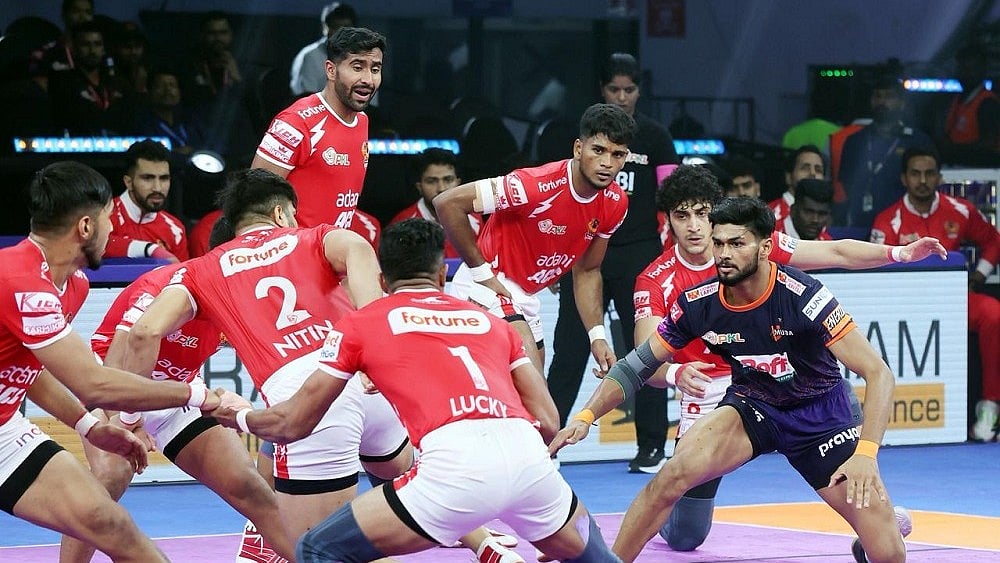The United Nations has predicted that India is on the verge of overtaking China to become the world’s most populous country, with more than 1.4 billion citizens. The country has a larger working-age population in absolute numbers (1.1 billion) and proportion (75 percent of the population) than any other major economy.
Earlier in January this year addressing the National Cadet Corps (NCC) cadets and National Service Scheme (NSS) volunteers ahead of the Republic Day Parade Prime Minister, Modi said that India's youth represent the country's aspirations and dreams in the ongoing "amrit kaal".
He also said that there are a lot of opportunities for youngsters in the country as India is working for the future of the entire world in sectors ranging from space to environment.
Modi added , "The world sees a new future for itself in India's achievements," But after a month to its contrary, India’s unemployment rate rose to a three-month high of 7.8% in March 2023. According to the latest data released by the Centre for Monitoring Indian Economy (CMIE) marks an increase from the 7.2% unemployment rate recorded in February and represents a setback for the country’s efforts to revive its economy in the aftermath of the COVID-19 pandemic.
The rise in unemployment is likely to be a cause for concern for the policymakers, who have been working to stimulate economic growth and create new jobs in the wake of the pandemic. The government has introduced a range of measures to support businesses and encourage job creation, including the Atmanirbhar Bharat initiative and the National Employment Policy.
However, the latest data suggests that these efforts may not be having the desired impact. The rise in unemployment may be due to a number of factors, including the impact of the pandemic on businesses and the wider economy, as well as ongoing structural issues in the labor market.
One of the main challenges facing India’s labor market is the lack of formal jobs, particularly in the manufacturing and service sectors. Many workers are employed in the informal sector, which is characterized by low wages, poor working conditions, and little job security. This makes it difficult for workers to access social protections and benefits, and can contribute to economic insecurity and poverty. The lack of skills taught in educational institutes is directly proportional to unemployment rate in the country.
According to a report by Bloomberg, thousands of small private colleges that don’t have regular classes, employ teachers with little training, use outdated curriculums, and offer no practical experience or job placements, according to more than two dozen students and experts who were interviewed by Bloomberg.
The report by Bloomberg further says the government regularly highlights the benefits of having more young people than any other country. Yet half of all graduates in India are unemployable in the future due to problems in the education system, according to a study by talent assessment firm Wheebox.
Many businesses say they struggle to hire because of the mixed quality of education. That’s kept unemployment stubbornly high at more than 7% even though India is the world’s fastest growing major economy.
The report further reveals that education is also becoming an outsized problem for Prime Minister Narendra Modi as he attempts to draw foreign manufacturers and investors from China. Modi had vowed to create millions of jobs in his campaign speeches, and the issue is likely to be hotly debated in the run up to national elections in 2024.
“We do face a challenge in hiring as specific skill sets required for the industry are not currently easily available in the market,” said Yeshwinder Patial to Bloomberg, who is director for human resources at MG Motor India.
The complexities of the country’s education boom are on show in big and small cities. Massive billboards with private colleges promising young people degrees and jobs are ubiquitous.
Such promises are hard to resist for millions of young men and women dreaming of a better life in India’s dismal employment landscape. Higher degrees, once accessible only to the wealthy, have a special cachet in India for young people from middle and low-income families.
Students interviewed by Bloomberg cited a string of reasons for investing in more education, from attempting to boost their social status to improving their marriage prospects to applying for government jobs, which require degree certificates from applicants.
One of Bhopal's educational institutions came under a particularly sharp spotlight in recent years because it was involved in a case that went all the way up to India's highest court. In 2019, the Supreme Court barred the Bhopal-based RKDF Medical College Hospital and Research Centre from admitting new students for two years for allegedly using fake patients to meet medical college requirements.
The college initially argued in court that the patients were genuine, but later submitted an apology after an investigative panel found that the purported patients weren’t really sick. ‘’We have noticed a disturbing trend of some medical colleges in projecting fake faculty and patients for obtaining permission for admission of students,” the court said in its judgement.
The medical school is part of RKDF Group, a well known name in central India, which has wide network of colleges in areas from engineering to medicine and management.
The Modi administration is trying to address the shortcomings in the education sector in its 2020 new education policy (NEP), committing to improve the quality of its institutions. It’s also begun the process of allowing leading foreign universities to set up campuses and award degrees in the country.
According to NEP, by 2025, at least 50% of learners shall have vocational exposure through school and higher education. The NEP 2020 stated that there will be ‘no hard separation’ between the ‘vocational and academic streams.
According to the NCERT textbook, NEP 2020 has laid emphasis on recruiting adequate teachers of vocational subjects to schools and school complexes as well as hiring a local eminent person or expert as a master instructor in various subjects, such as traditional local arts, vocational crafts, entrepreneurship, agriculture, or any other subject where local expertise exists to benefit students and help preserve and promote local knowledge.












